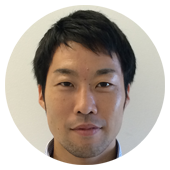A dozen guns found in suspect Stephen Paddock's hotel suite had a device called a "bump stock" attached to them, virtually turning them into fully automatic weapons. The device is legal and so were the dozens of other guns officials say Paddock purchased from 4 different states.
"The gunman purchased rifles, shotguns, and pistols. At this time, none of the guns recovered appears to be home made," authorities announced. Police conducted a search and found many firearms and explosives in Paddock's home in Mesquite, Nevada. Authorities are investigating his motive. Paddock has no criminal history, and many are wondering why this happened.
Some US Democratic lawmakers were quick to point to the country's gun laws as a potential reason. "This epidemic of gun violence is a uniquely American problem. It doesn't happen in any other industrialized country. And it's not because we have a higher rate of mental illness than other countries do. It's not because we spend less money on law enforcement than other countries do. It's because this country has the loosest set of gun laws," said US Democratic Senator Christopher Murphy.
Republican Senate leader Mitch McConnell brushed aside the comment. "I think it's particularly inappropriate to politicize an event like this. It just happened within the last day and a half. It's entirely premature to be discussing about legislative solutions, if any," he said.
The gun control debate in the United States follows a predictable pattern after a mass shooting. It was raised after a gunman opened fire in an Orlando nightclub last year, killing 49 people, and also 10 years ago, when a student with a history of mental illness killed 32 people at Virginia Tech University.
Calls for tighter legislation often lead nowhere. But events like these can quickly change people's minds. One of the musicians on stage at the time of the Las Vegas shooting reversed his opinion and now supports gun control.
He wasn't the only one. A female shopper at one of the stores where Paddock purchased his guns says she had a change of heart. "I came because of the situation. I don't own a gun but it's making me feel different. And that's why I came because I just wanted some type of home defense," she says.
The division is deeply political. Sunday's massacre is bringing back a call to ban bump stocks by some lawmakers. And a bill that would make it easier to buy gun silencers proposed by Republicans was met with renewed calls by Democrats to drop it. The US president has already said now is not the time to talk about gun control.
NHK World's Special Affairs Commentator, Takashi Ichinose, joins Newsroom Tokyo anchors Hideki Nakayama and Aki Shibuya in studio. Takashi has been covering gun violence in America and attempt at gun control as a correspondent for decades.
Shibuya:This isn't the first time we hear about guns getting into the hands of the wrong people. How did this most recent incident strike you?
Ichinose: Like everyone, I was dumbfounded watching the attack unfold. I have long felt that America's gun violence would only get worse ever since I first covered the shooting death of Japanese exchange student Yoshihiro Hattori in Baton Rouge, Louisiana, in 1992. But the shooting in Las Vegas went far beyond my imagination.
The killing of Hattori on Halloween night made people in Japan realize just how prevalent the gun culture is in US. He was shot as he approached a house dressed in a Halloween costume. The resident ordered him to freeze, but Yoshihiro failed to understand him and kept approaching.
The man fired a handgun he kept in his house. The killing of the teenager left people in Japan stunned and made them realize how ubiquitous guns are in American households.
Yoshihiro's heartbroken parents began a crusade for gun control in the US. They visited the White House and met President Bill Clinton. That prompted a law that tightened gun control. But the parents' continued efforts faced an uphill battle against the powerful gun lobby headed by the National Rifle Association.
Then came the mass shooting at a high school in Littleton, Colorado, in 1999. Two students went on shooting rampage and killed 12 students and a teacher. I covered that as well. Once again, people in the US were shaken and Hollywood even made a movie about it.
Nakayama: Trump is saying that even after this latest mass murder, it's still not the time to talk about gun control. Why is it such a divisive issue?
Ichinose:President Trump has close ties with the NRA. The gun lobby maintains that what's wrong is not the gun but the person who uses it. And the gun lobby is very powerful. Moreover, the situation surrounding gun control differs from state to state.
I spoke with some members of US state legislatures who are currently in Japan. They say changing the US constitution in which citizens are guaranteed the right to bear arms would be very difficult. They are not optimistic about any drastic change in the gun control debate. The way things stand at present, I am afraid to say that what happened in Las Vegas may occur again in the years to come.

